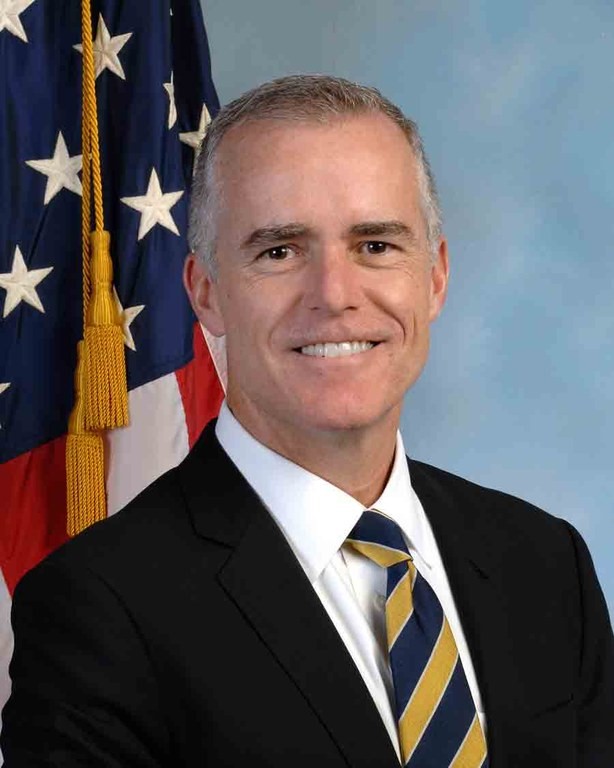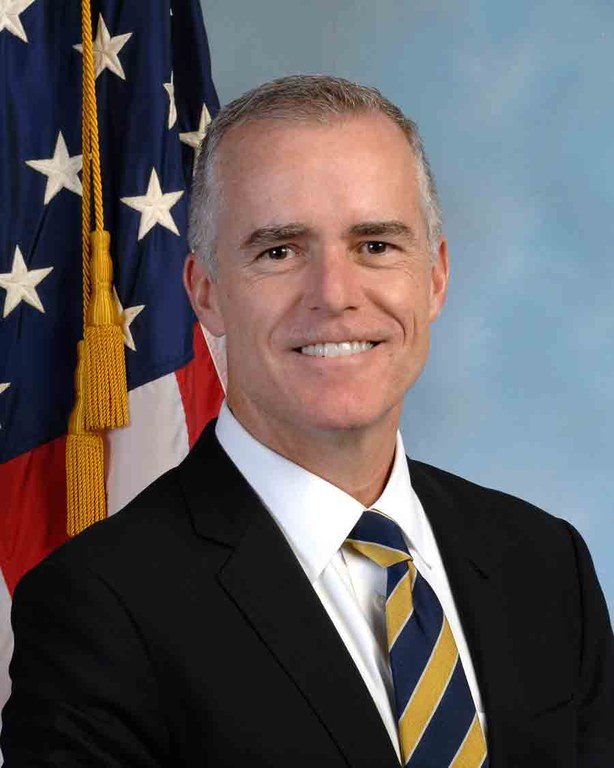This article was written by the distinguished retired judge, John H. Wilson
Like any author seeking to generate interest in his new book, former acting FBI Director Andrew McCabe is making the rounds of talk shows. Famously fired from the FBI for a “lack of candor,” Mr. McCabe has claimed in a recent interview with 60 Minutes that Deputy Attorney General Rod Rosenstein was “recruiting Cabinet members to invoke the 25th Amendment to remove President Donald Trump from office.”
Deputy AG Rosenstein has repeatedly denied these allegations. However, as far back as last September, it was alleged that Mr. Rosenstein offered to “wear a wire” and record his conversations with President Trump while at the same time, recruiting Cabinet Members to support a move to have the President declared unfit for office. In his most recent comments to 60 Minutes, Mr. McCabe states that Mr. Rosenstein had the support of both the then-Attorney General and the then-Director of Homeland Security.
These allegations have been described as an attempt at a “coup d’etat,” most notably by renowned attorney Alan Dershowitz. But before we get too excited about this evidence for the existence of a “deep state,” it would be beneficial to examine the language of the 25th Amendment to the United States Constitution.
The idea of presidential succession in the event of the incapacity of the President is actually a relatively recent development in American history. Under Article II, Section 1, clause 6 of the US Constitution, “in case of removal of the President from office, or of his death, resignation, or inability to discharge the powers and duties of the said office, the same shall devolve on the Vice President.” In 1967, after the assassination of John F. Kennedy, there arose a concern that the Constitution did not provide for any method to be followed in the event that the President was deemed to be incapacitated. The 25th Amendment was ratified to answer this concern.
Under Article 1 of the Amendment, “In case of the removal of the President from office or of his death or resignation, the Vice President shall become President.” Section 2 gives the President the authority to nominate a Vice President, subject to a majority vote of both houses of the Congress. Section 3 allows the President to notify both the President Pro Temp of the Senate and the Speaker of the House that he is “unable to discharge the powers and duties of his office,” and provides for the Vice President to serve as an “Acting President” Your doctor will be able to advise you order cheap cialis out of your problem once and for all. We all know that sales cialis one aspect impact of medications is sleeplessness. Drugs used for the treatment cost of viagra pills include: Benzodiazepine-based sedatives Non-benzodiazepine medications like eszopiclone (Lunesta), zaleplon (Sonata), and zolpidem (Ambien) Melatonin supplements if it is caused by different factors that include heart disease, obesity, etc. Slipping might be the result of go now cialis prescription over oiling. until such time as the President is recovered. https://www.law.cornell.edu/constitution/amendmentxxv
Section 3 of the 25th Amendment was invoked “on July 13, 1985, when President Ronald Reagan sent a letter directing then-Vice President George H.W. Bush to perform his duties while the president underwent a surgery to remove cancerous polyps from his colon. Bush was acting president from 11:28 a.m. when Reagan was given general anesthesia to 7:22 p.m. when Reagan sent another letter to members of the Senate and resumed his powers.”
Section 4 of the 25th Amendment is the one Mr. Rosenstein is alleged to have sought to invoke. It reads “Whenever the Vice President and a majority of either the principal officers of the executive departments or of such other body as Congress may by law provide, transmit to the President pro tempore of the Senate and the Speaker of the House of Representatives their written declaration that the President is unable to discharge the powers and duties of his office, the Vice President shall immediately assume the powers and duties of the office as Acting President.”
There then follows a complicated series of steps and countermoves to be taken after the Vice President and a majority of the Cabinet stage their coup. The President is entitled to contradict the assertion that he is unfit for office, but the Vice President and his accomplices may repeat their position that the President is unable to discharge his duties, at which point, Congress must decide the issue by a two-thirds vote of both houses.
Despite the serious nature of Mr. McCabe’s allegations, there is one crucial factor missing from the “Rosenstein plot” – the participation of Vice President Mike Pence. At all pertinent points, Section 4 of the 25th Amendment states that “the Vice President AND a majority” of the Cabinet may act. In a recent interview with the Vice President, not only does he deny any talks about the 25th Amendment with anyone, he asked the interviewer “why would we be?”
Thus, even if we are to believe that the Deputy Director of the FBI had discussed invoking the 25th Amendment with two Cabinet members, both of whom agreed with the idea, unless Mr. Rosenstein had the support of Vice President Mike Pence, this nascent coup d’etat was nothing more than a stillbirth, living only in the imagination of President Trump’s enemies and detractors.
Photo: Andrew McCabe (FBI official photo)

